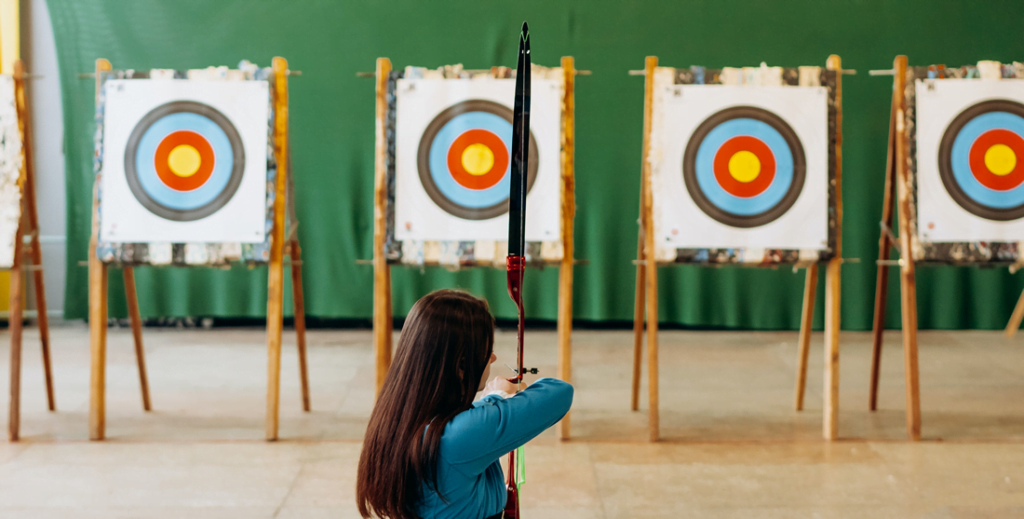Solitude, often undervalued in our fast-paced society, is a potent catalyst for self-improvement. Embracing periods of solitude permits us to engage in self-reflection, introspection, and personal growth. In the quietude of solitude, we can hear our thoughts more clearly, enabling the cultivation of self-awareness. This self-awareness is the cornerstone for self-improvement; it allows us to identify areas for enhancement, set goals, and monitor our progress. Therefore, solitude, far from being synonymous with loneliness, provides a transformative space for personal evolution and self-improvement.
Activities for Self-Improvement in Solitude
1. Mindfulness Meditation
Mindfulness meditation, an ideal practice for solitude, involves purposefully focusing your attention on the present moment and accepting it without judgment. It encourages a connection to oneself, fostering mental clarity and emotional calm.
By developing mindfulness, one can achieve a state of relaxation and tranquility, which cultivates a fertile ground for self-improvement. This practice is not just about quieting the mind, but also about tuning into your senses and thoughts, increasing your awareness, and understanding your mind-body connection.
When practiced regularly, mindfulness meditation can lead to improved focus, reduced stress, and increased emotional resilience. It serves as a powerful tool for enhancing mental well-being, fostering self-improvement through solitude.
2. Journaling and Reflective Writing
Establishing a Regular Writing Routine
Creating a regular writing routine is another effective way for self-improvement in solitude. This practice can help you to better understand your thoughts, feelings, and experiences, allowing you to gain insight into your own motivations and actions. The first step is to establish a routine; decide on a time each day when you will set aside everything else and focus solely on writing. Make sure this is a time when you can be alone and undisturbed. Some people find the quiet early morning hours to be ideal, while others may prefer the calm of late evening.
Remember to make your writing sessions enjoyable: find a comfortable place to sit, grab your favorite notebook or open a new document on your computer, and let the words flow. Don’t worry about grammar, punctuation, or writing quality at this stage—the aim is to express yourself freely and honestly.
Unleashing Creativity and Self-Discovery through Journaling
Journaling is an excellent method for unleashing creativity and self-discovery. This process of documenting thoughts, feelings, and ideas can lead to deep introspection and self-understanding. Through journaling, you can explore your inner world and gain valuable insights into your strengths, weaknesses, beliefs, and fears. It is a platform where you can confront your truths, challenge your assumptions, and ultimately steer yourself towards growth and self-improvement.
Writing regularly in a journal can also stimulate creativity. When you write freely and without judgment, you give your creative mind the space to explore new ideas and perspectives. Over time, you may find this practice not only deepens your understanding of yourself but also enhances your problem-solving skills, decision-making abilities, and overall creativity. Thus, journaling is a highly beneficial practice for self-improvement in solitude.
3. Reading for Personal Growth
Reading is a simple yet potent tool for self-improvement that can be effectively utilized in solitude. By carefully curating a reading list, you can explore a range of topics, perspectives, and experiences that foster growth and development.
Start by identifying areas of your life or personal traits you wish to improve or develop. Let’s say you want to enhance your leadership skills, you might consider reading biographies of great leaders or books on leadership theories and practices. If emotional intelligence is your focus, delve into psychology and self-help books that provide insights into human behavior and emotions.
As you read, don’t just passively consume the content. Engage with the material, challenge the ideas presented, and relate it to your own experiences and knowledge. Make notes of key lessons, quotes, and insights that resonate with you. Reflect on these insights and consider how they can be applied in your life’s context.
With each book you read, you’re not just gaining knowledge; you’re engaging in a dialogue with the author, learning from their experiences and expertise. This process of reading for personal growth is a powerful self-improvement strategy that can be pursued in solitude, offering a wealth of insights and lessons to guide your personal development journey.
4. Setting and Achieving Personal Goals
Creating SMART (Specific, Measurable, Achievable, Relevant, Time-bound) goals is a crucial aspect of self-improvement, and when pursued in solitude, can lead to significant personal growth and development. The specificity of SMART goals allows you to clearly define what you want to achieve, while their measurability facilitates progress tracking, which is essential for maintaining motivation and measuring success.
Begin by identifying specific areas of self-improvement, be it enhancing communication skills, learning a new language, or improving physical fitness. Once identified, articulate these objectives in detailed and measurable terms. For example, instead of having a vague goal like “I want to get fit”, a SMART goal would be “I want to be able to run 5 km in under 30 minutes within the next 3 months”.
As you progress towards your goal, take time to regularly review and track your progress. This not only keeps your goal at the forefront of your mind but also allows you to adjust your plan if needed, ensuring it remains achievable and relevant.
Importantly, remember to celebrate your achievements, no matter how small. Each step forward is a testament to your commitment towards self-improvement. These celebrations can be solitary, such as treating yourself to your favorite book or meal, or taking a moment to reflect on your achievement and its significance. This acts as a positive reinforcement, boosting your motivation and confidence to tackle the next goal.
In solitude, the journey of setting, tracking, and achieving SMART goals becomes a source of self-improvement, fostering self-awareness, resilience, and a sense of accomplishment.
5. Learning New Skills
Identifying skills that align with your personal interests and passions is a pivotal aspect of self-improvement. It not only ensures that you remain motivated and engaged throughout the learning process but also enhances the likelihood of retaining and applying the acquired skills. To identify such skills, take some time to introspect and reflect on what naturally intrigues you. You might find joy in creative pursuits, have a knack for analytical thinking, or feel driven by interpersonal interactions.
Once you’ve determined the skills you’d like to foster, take advantage of the myriad of online resources available for self-paced learning. Platforms like Coursera, Udemy, and LinkedIn Learning offer a plethora of courses catering to a wide array of disciplines. They accommodate for different learning preferences with their diverse content formats including video lectures, interactive quizzes, and discussion forums. Moreover, they provide the flexibility to learn at your own pace, making it easier to incorporate learning into your daily routine.
Remember, the journey towards self-improvement through solitude is not about making massive leaps but rather about making consistent, small steps forward. Make use of these online resources, invest time in learning, and witness how these newly gained skills gradually transform your life, personally and professionally.
6. Embracing Solitude in Nature
Connecting with the outdoors is a potent method for achieving mental clarity and fostering self-improvement. The tranquility and solitude offered by nature can effectively serve as a refuge from the daily hustle and bustle, providing an ideal environment for introspection and personal growth.
When we immerse ourselves in nature, we can cultivate mindfulness, focusing on our surroundings and the present moment. This helps to clear our minds, relieving us of stress and anxiety. In addition, the beauty and majesty of nature can inspire us, igniting our creativity and problem-solving abilities.
Regular nature walks or simply spending time in green spaces can significantly enhance our mental well-being. So, make it a habit to spend time alone with nature and allow its serenity and beauty to bring clarity to your thoughts and rejuvenate your spirit.
Activities in Nature Perfect for Solitude
- Hiking: Hiking alone allows you to set your own pace and choose your trail, fostering a sense of independence and freedom. It’s a wonderful way to improve your fitness level while enjoying the beauty of nature. The silence and solitude of hiking can offer ample opportunity for self-reflection and meditation.
- Walking: A simple walk in a green space, such as a park or a forest, can be a refreshing and calming experience. Walking alone helps to clear your mind, allowing you to focus on your thoughts, feelings, and the surrounding nature. You can observe the subtle changes in the environment, which often go unnoticed in the company of others.
- Stargazing: Stargazing is a profound solo activity that can give you a sense of perspective and peace. Away from the city lights, alone under the vast night sky, you can contemplate the mysteries of the universe. This activity can help you to feel more connected to the cosmos, inspiring a sense of awe and wonder.
- Birdwatching: Birdwatching is a peaceful activity that requires patience and focus. It offers a unique opportunity to connect with nature and learn about different bird species. The quiet observation and solitude can create a mindful experience, enhancing your appreciation for nature’s diversity.
- Photography: Nature photography as a solo activity can be a creative outlet that helps you see the world through a different lens. The quiet pursuit of the perfect shot allows for inner reflection, and the results can provide a lasting memory of your solitary adventures.
Remember, these activities aren’t about pushing your limits or achieving a goal. They’re about enjoying the solitude, immersing yourself in the present, and fostering self-improvement through solitude.
Overcoming Challenges in Solitude
Dealing with Feelings of Loneliness
When engaging in solitary activities, it’s not uncommon to experience feelings of loneliness. However, it’s important to distinguish between solitude and loneliness – the former can be a deliberate, beneficial state of being, while the latter often implies a sense of unwanted isolation. One key to dealing with feelings of loneliness is to shift your perspective and see solitude as an opportunity for self-reflection and personal growth.
Begin by embracing your solitude and using it as a time for introspection. Journaling can be an effective tool, providing a space for you to express your thoughts and emotions freely. In doing this, you may come to understand your feelings of loneliness better and gain insight into your desires for companionship.
Another strategy is to engage in mindfulness exercises. Focusing on your breath, the sensations in your body, or the sounds around you can anchor you in the present moment and reduce feelings of isolation. Over time, you may find that solitude brings a sense of peace, deepening your self-understanding and enhancing your ability to connect meaningfully with others when the opportunity arises.
Navigating Societal Pressure for Constant Socialization
In a world that often equates busyness with significance and constantly being socially engaged with fulfillment, it can be challenging to carve out time for solitude. Succumbing to societal pressure for constant socialization can, paradoxically, lead to feelings of isolation and disconnection. To counter this, it’s essential to establish a personal boundary and communicate it effectively. Make it clear to those around you that you value periods of solitude for personal growth and self-improvement.
It may also be beneficial to schedule your solitary time, treating it with the same respect and commitment as any social engagement. This way, you are less likely to be swayed by the pressure to socialize when you have a dedicated ‘solitude appointment’.
Finally, remember that the pursuit of constant socialization often stems from a fear of missing out (FOMO). Recognizing this fear and consciously choosing solitude over social interaction is a powerful step towards self-improvement through solitude. It’s important to remember that by choosing solitude, you’re not missing out; instead, you’re gaining a deeper connection with yourself.
Developing a Healthy Balance Between Solitude and Social Interactions
Striking a healthy balance between solitude and social interactions involves being mindful of your needs and setting boundaries. Start by assessing your personal needs. Some people may thrive with significant periods of solitude, while others might find too much loneliness draining. Understand what works best for you and adjust your schedule accordingly.
Equally important is setting personal boundaries. Inform your friends, family, and colleagues about your need for quiet time, and ensure they respect it. You could also use this time for activities that foster self-improvement, such as reading, meditation, or pursuing a hobby.
Time management is another crucial factor. Allocate specific times for socializing and solitary activities. By having a clear plan, you can prevent either aspect from taking over your life. For instance, you might designate certain evenings for social activities and reserve mornings for solitary pursuits.
Lastly, remember that it’s okay to say no. If you are feeling overwhelmed or in need of some alone time, it is perfectly acceptable to decline social invitations. Understanding your limits and respecting your needs is an important part of self-improvement through solitude.
Cultivating a Positive Mindset
Practicing Gratitude in Solitude
Practicing gratitude in solitude can be a powerful tool for self-improvement. The quiet and reflective nature of solitude provides the perfect environment to contemplate the things you are truly thankful for. Start by setting aside a few minutes each day to jot down what you are grateful for. This could range from significant events like a job promotion to appreciating simple joys like a sunny day or a good book. Regularly acknowledging the positive aspects of your life shifts your focus from what’s wrong to what’s right, promoting a more optimistic outlook.
Plus, expressing gratitude in moments of solitude helps cultivate a sense of contentment and happiness from within, rather than seeking it in external validation. This self-sufficiency not only enhances emotional stability but also fosters resilience in the face of adversity. Over time, you may notice improved mental well-being and an increased sense of self-worth—integral components of self-improvement.
Embracing gratitude in solitude is a transformative habit that aids in personal growth and well-being. It helps you cultivate a positive mindset, which is key to achieving self-improvement through solitude.
Fostering Self-Compassion and Self-Love
Fostering self-compassion and self-love is another fundamental practice for self-improvement through solitude. In the stillness of being alone, we can turn inward to understand our emotions, make peace with our flaws, and forgive ourselves for past mistakes. This practice of self-compassion creates a nurturing space for personal growth, as it replaces self-criticism with understanding and self-judgement with acceptance.
Self-love, on the other hand, is about honoring and respecting oneself. It’s about acknowledging your worth and taking care of your needs. In solitude, one can cultivate self-love by engaging in self-care activities, setting healthy boundaries, and making choices that reflect respect for oneself.
Both self-compassion and self-love are essential for enhancing self-esteem and promoting emotional well-being. They empower us to be patient and kind to ourselves, especially during difficult times. By practicing these habits in solitude, we can develop a healthy relationship with ourselves, which is the foundation of genuine self-improvement. Remember, the journey to self-improvement through solitude begins with a kind and loving relationship with oneself.
Surrounding Oneself with Positive Influences
Surrounding oneself with positive influences, even in solitude, is a powerful strategy for self-improvement. In the digital age, the idea of positive influences extends beyond personal relationships to include books, podcasts, online courses, and social media. These mediums provide access to a wealth of knowledge and inspiration that can foster personal growth.
In solitude, one can read self-help books or listen to podcasts focusing on personal development. These resources often offer practical tips and insights that can assist in the journey of self-improvement. They can inspire us, motivate us, and also provide us with different perspectives on life.
Online courses and webinars also offer opportunities for skill development and learning at one’s own pace. Engaging in these activities in solitude allows for focused attention and absorption of the material.
Even social media, when used mindfully, can be a positive influence. Following pages and influencers that promote positivity, self-care, and personal growth can provide daily nuggets of wisdom and inspiration.
By consciously choosing these positive influences during our solitary time, we can make our journey of self-improvement more enriching and effective. Remember, every book you read, every podcast you listen to, and every course you take is a step towards becoming a better version of yourself.
Final Thoughts on Self-Improvement through Solitude
Solitude can serve as a powerful tool for self-improvement. It offers unrivaled opportunities to reflect, gain clarity, and make meaningful progress on our personal development journey. Through mindful selection of positive influences such as informative books, motivational podcasts, engaging online courses, and inspirational social media content, we can maximize the value of our alone time.
These resources not only deliver new knowledge and insights but also inspire us and contribute to our broader perspectives on life. Thus, self-improvement through solitude is about learning, growing, and progressing at our own pace, in our own space. It’s a reminder that every step we take alone on this journey is a step towards becoming a better version of ourselves.
Every journey towards self-improvement is unique and ongoing. It involves constant self-discovery, a never-ending cycle of learning, unlearning, and relearning. Embracing solitude in this journey allows us to gain a deeper understanding of ourselves, our strengths, and areas for growth. As we cultivate patience and perseverance, we experience personal transformations that lead to a heightened sense of self-awareness and a more fulfilling life.
Self-improvement is not a destination but a journey, and solitude can be a trusted companion on this path. Through this journey, we not only become better versions of ourselves but also contribute to making the world a better place, one step at a time.














